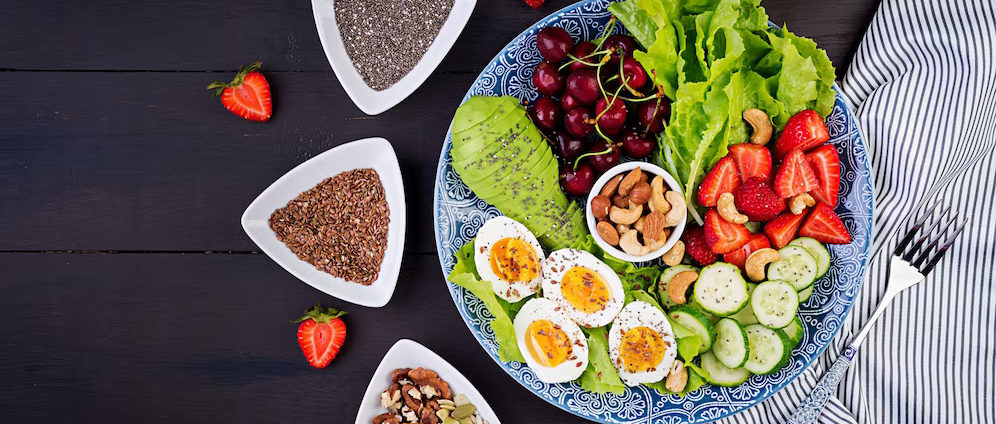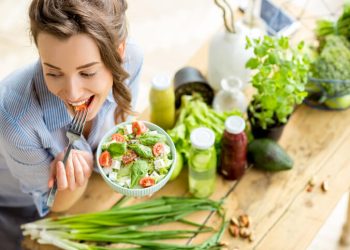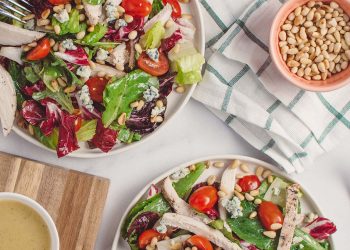How to achieve balanced nutrition while following a vegetarian or vegan diet
Vegetarian and vegan diets have become increasingly popular in recent years. Following a vegetarian or vegan diet can be healthy and enjoyable, but it is essential to ensure balanced nutrition.
What is a vegetarian and vegan diet?
A vegetarian diet does not include animal products, such as meat, fish, and poultry, and consists mainly of plant-based foods. Some vegetarian diets include eggs and milk, animal-source products which don’t take animals’ lives. A vegan diet is much more strict. Vegans avoid all products of animal origin, including milk, eggs and even honey.
Risks connected with a plant-based diet
While this diet may offer many health benefits, it is crucial to ensure it is well-balanced. One potential risk of solely plant-based nutrition is nutrient deficiencies. Vegetarians may be at risk of nutrient deficiencies in protein, iron, calcium, vitamin B12, and omega-3 fatty acids.
Balanced plant-based meal planning
Healthy meal planning to address the risk of nutrient deficiencies is important. Incorporate a variety of protein sources, such as legumes, nuts, and seeds, as well as iron-rich foods like leafy greens, legumes and fortified cereals. Vitamin B12 sources include golden chlorella and algae-based dietary supplements. Omega-3 plant-based sources can be found in seeds, such as flaxseeds, chia seeds and walnuts. It is important to include a variety of proteins to ensure an adequate intake of essential amino acids. They’re vital for bodily functions, including protein synthesis, tissue repair, and nutrient absorption. Nutritionists recommend combining plant-based proteins from various foods to ensure all essential amino acids: tofu, pulses, whole grains, mushrooms and nuts. These products are also rich in calcium.
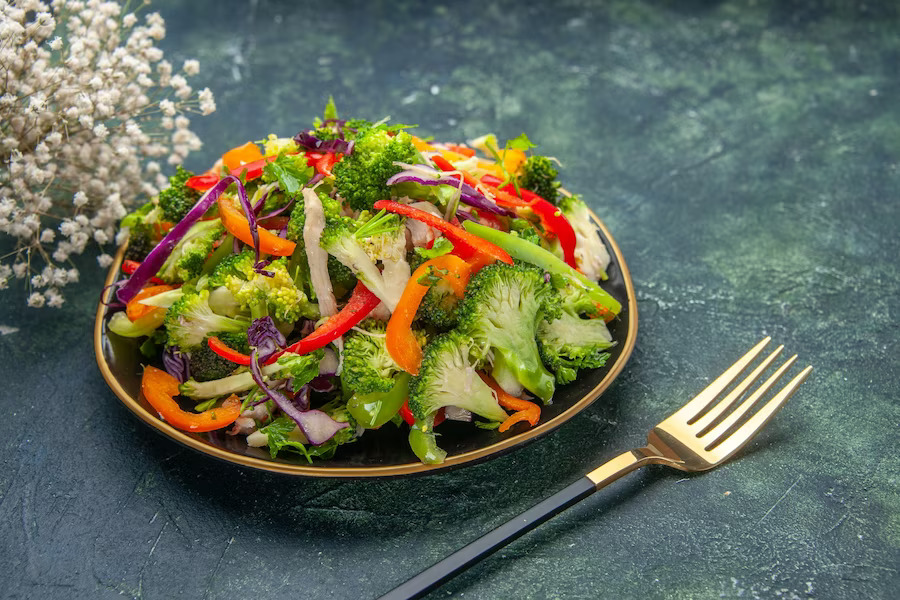
Additionally, you can avoid calcium deficiency by incorporating calcium sources such as leafy greens (kale, collard greens, spinach, and turnip) in your diet. Add calcium-fortified plant milk every morning for breakfast. Nuts and seeds, such as almonds, sunflower seeds, and sesame seeds, are also excellent calcium sources.
Healthy snack ideas are an important part of vegan meal planning
Eating a variety of healthy snacks throughout the day can help you maintain a healthy weight, regulate your blood sugar, and include a variety of protein sources in your diet. Eating a variety of healthy snacks can help you stay on track with your vegan diet, ensure that you are getting all of the vitamins and minerals your body needs, and help you stay energized throughout the day.
There are so many healthy vegan healthy snack ideas you can plan
- Roasted chickpeas
- Hummus with carrots, celery or cucumber sticks
- Apple slices with peanut butter
- Nuts and seeds
- Edamame
- Avocado on the whole-grain toast
- Whole grain crackers
- Baked kale chips
- Seaweed snacks
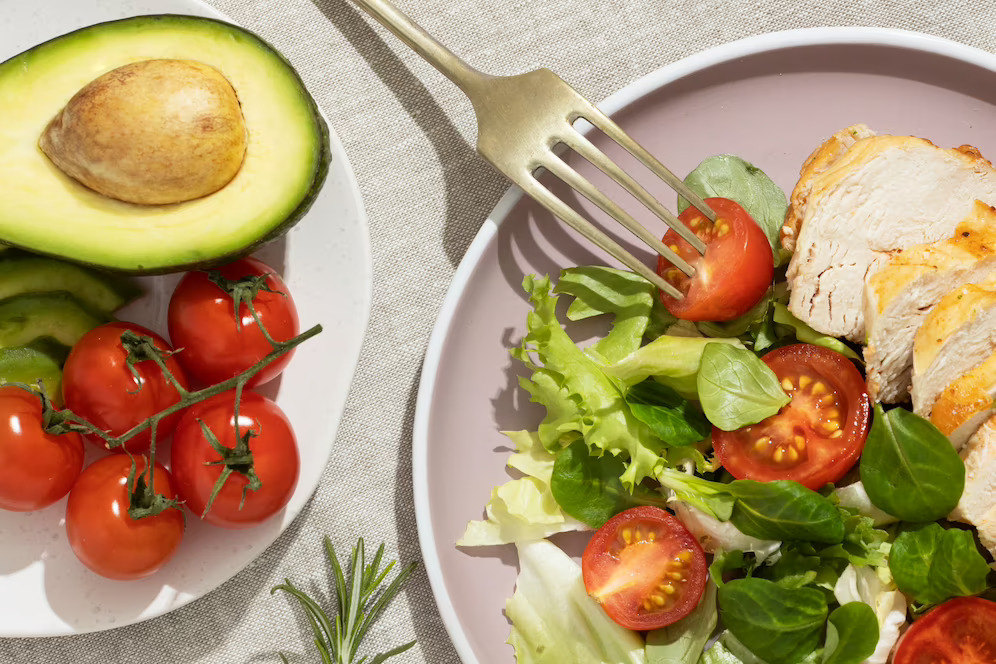
Here is the 9 points checklist on how to ensure a variety of your plant-based diet
- Eat a variety of plant-based proteins and iron-rich foods: beans, legumes, nuts, seeds, and soy-based products such as tofu and tempeh.
- Incorporate a variety of grains into your diet. Try whole grains such as quinoa, barley, oats, and brown rice.
- Enjoy a wide variety of fruits and vegetables. Experiment with different colours, textures, and flavours.
- Add healthy fats such as avocados, nuts, and seeds to your meals.
- Incorporate fermented foods such as sauerkraut, kimchi, and miso into your diet.
- Enjoy plant-based milk such as almond milk, coconut milk, and hemp milk.
- Experiment with different spices, herbs, and seasonings to add flavour to your meals. 8. Try alternative proteins such as seitan, jackfruit, and mushrooms.
- Add superfoods such as spirulina and chia seeds to your meals.
Eating out for vegans can be a challenge
When eating out as a vegan, it’s important to ask questions about what’s in each dish. Many non-vegan restaurants must know what vegan meals should or should not contain. Be bold and ask for substitutions: If you’re eating at a restaurant that doesn’t offer vegan or vegetarian options, you can always ask if they can make substitutions.

The future of vegan nutrition is bright. As more people become aware of the health benefits of a vegan diet, the demand for vegan products will continue to grow. In addition, with the rise of plant-based meat alternatives, vegan diets are becoming more accessible and appealing to a broader range of people. In the future, vegan nutrition will become a more mainstream dietary choice. As vegan diets become more popular, the availability of vegan food products and restaurants will increase, making it easier for people to access vegan food. Furthermore, vegan diets will become more affordable as the cost of vegan food products decreases.
Summary
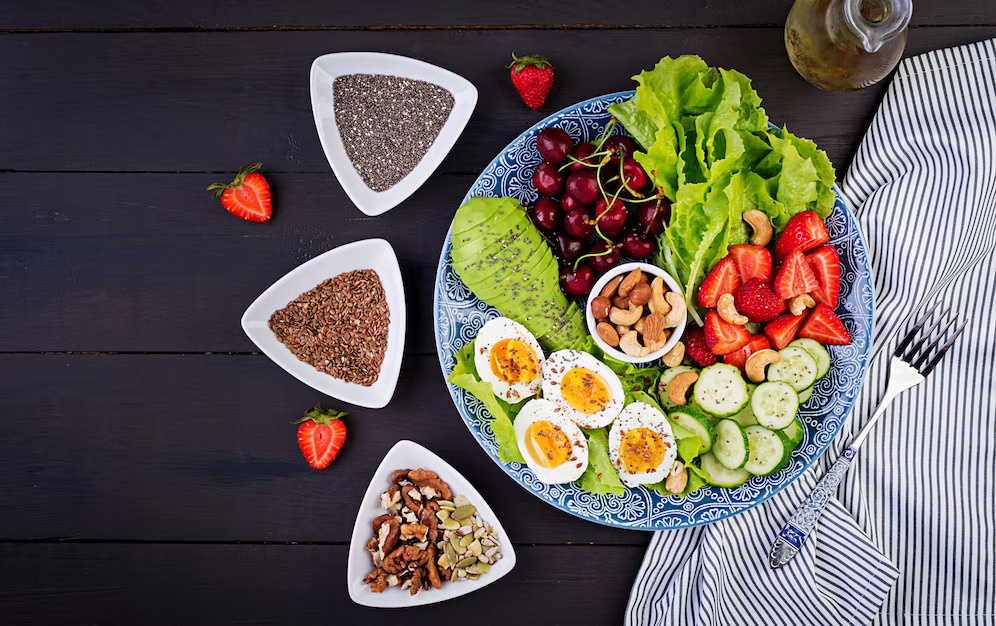
Article Name
How to achieve balanced nutrition while following a vegetarian or vegan diet
Description
Vegetarian and vegan diets have become increasingly popular in recent years. Following a vegetarian or vegan diet can be healthy and enjoyable, but it is essential to ensure balanced nutrition.
Author
Sacha Thorey
Publisher Name
AllCook
Publisher Logo

